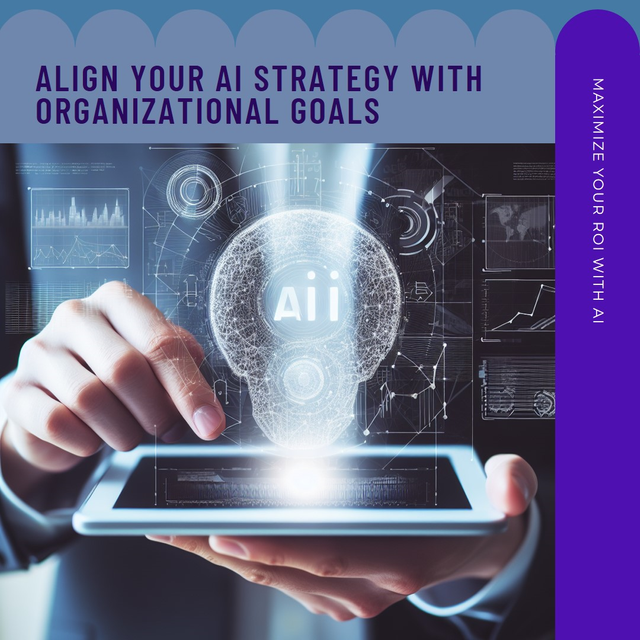
Introduction:
In the rapidly evolving landscape of modern business, integrating Artificial Intelligence (AI) into organizational strategy has become imperative for staying competitive and achieving long-term success. An effective AI strategy not only enhances operational efficiency but also aligns seamlessly with organizational goals, fostering innovation, customer satisfaction, and overall growth.
I. The Significance of AI Alignment:
Achieving alignment between AI strategy and organizational goals is crucial for leveraging the full potential of emerging technologies. Companies need to identify key objectives, whether they be cost reduction, improved customer experience, or enhanced decision-making capabilities. By aligning AI initiatives with these goals, organizations can create a roadmap that ensures every implementation contributes directly to strategic objectives.
II. Tailoring AI Solutions to Organizational Objectives:
To maximize the impact of AI, organizations must tailor their solutions to specific goals. Whether it's streamlining internal processes, optimizing supply chain management, or personalizing customer interactions, AI applications should be strategically designed to address unique challenges and opportunities within the organizational framework.
III. AI-Powered Chatbots: Revolutionizing Customer Interaction:
One notable application of AI that significantly contributes to organizational goals is the integration of AI-powered chatbots. These intelligent virtual assistants play a pivotal role in enhancing customer engagement, automating routine tasks, and providing real-time support. AI-powered chatbots, as discussed in detail in a recent article on The Aingle, have evolved beyond simple interactions, utilizing natural language processing and machine learning to understand and respond to customer queries with human-like precision.
In the context of organizational goals, AI-powered chatbots contribute to improved customer satisfaction, increased operational efficiency, and cost-effectiveness. By automating repetitive tasks, they free up valuable human resources to focus on more complex and strategic initiatives. Moreover, these chatbots collect valuable data on customer preferences and behaviors, providing insights that can inform broader organizational strategies.
Conclusion:
In conclusion, aligning AI strategy with organizational goals is not just a trend but a necessity for businesses aiming to thrive in the digital era. From streamlining operations to enhancing customer interactions, the integration of AI, including innovative solutions like chatbots, represents a transformative step toward achieving strategic objectives. By carefully crafting and implementing an AI strategy that aligns with organizational goals, companies can pave the way for sustained growth and competitiveness in today's dynamic business environment.